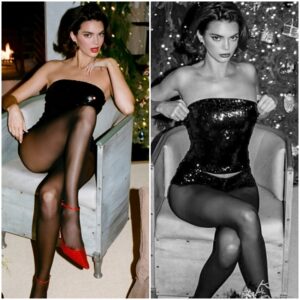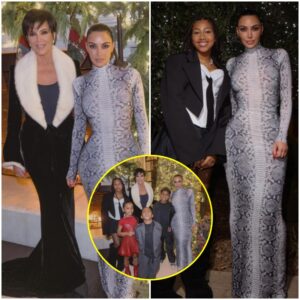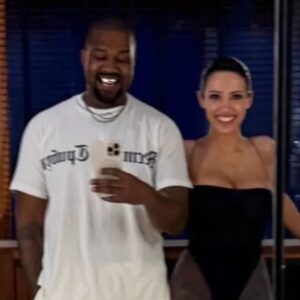Pharrell Williams was criticised by viewers of The Graham Norton Show on Friday for his outfit choice.
The musician, 51, appeared on the latest episode of the BBC chat show alongside Billy Crystal and Paddington In Peru stars Emily Mortimer and Hugh Bonneville.
But many viewers were less than impressed with Pharrell’s decision to wear sunglasses throughout the duration of the show.
Taking to X, fans expressed their distate with his outfit choice, writing: ‘Why is Pharrell wearing sunglasses? I know he’s cool but please!’
‘Why is he wearing sunglasses indoors?’… ‘I love Pharrell, but take your sunglasses off #GrahamNortonShow’.

+9
View gallery
Pharrell Williams was criticised by viewers of The Graham Norton Show on Friday for his outfit choice

+9
View gallery
The musician, 51, appeared on the latest episode of the BBC chat show alongside Billy Crystal and Paddington In Peru stars Emily Mortimer and Hugh Bonneville

+9
View gallery
But many viewers were less than impressed with Pharrell’s decision to wear sunglasses throughout the duration of the show
‘Lot of respect to Pharrell Williams as a musician but I lose interest when someone is wearing sunglasses on a show like this.’
‘Why is Pharrell Williams wearing sunglasses on Graham Norton… you’re embarrassing me in front of Billy Crystal.’
‘I’m sorry but how rude is Pharrell sat there with his sunglasses on, so disrespectul.’
Pharrell was on the show to promote his new biopic Piece By Piece which tells the story of his rise to fame in Lego form.
During the interview, Graham asked the Happy hitmaker about the medical condition synesthesia which is dealt with in the film.
That means he doesn’t just hear music, to him melodies, choruses and hooks all have a textual rainbow of colours.
The medical phenomenon causes people to experience one sense through another, from seeing music to tasting words and smelling shapes.
Speaking in the documentary he confesses to feeling ‘mesmerised’ by music when he was young and recalls ‘staring into the speaker and seeing these colours’.

+9
View gallery

+9
View gallery
Taking to X, fans expressed their distate with his outfit choice, writing: ‘Why is Pharrell wearing sunglasses? I know he’s cool but please!’

+9
View gallery
Pharrell was on the show to promote his new biopic Piece By Piece which tells the story of his rise to fame in Lego form

+9
View gallery
During the interview, Graham asked the Happy hitmaker about the medical condition synesthesia which is dealt with in the film
‘It’s not something that you see with your physical eyes, it’s something that you see in your mind’s eye,’ he explains.
‘I would just start the record over, and start it over, and over doing whatever it took to continue to make it happen,’ he added.
For him it not only enhances sound but also how he writes music.
Previously in a 2013 interview with NPR radio, Pharrell explained seeing colours also helps him recognise if something is in the right key.
He said: ‘It’s the only way that I can identify what something sounds like.
‘I know when something is in key because it either matches the same colour or it doesn’t. Or it feels different, and it doesn’t feel right.’
Synaesthesia isn’t a disease or a disorder but a rare neurological condition that affects around four per cent of people, according to Professor Jamie Ward, a cognitive neuroscientist who specialises in Synaesthesia at the University of Sussex.
‘One sense can trigger another. Music might have colours, shapes and textures and they change dynamically over time. It’s not like just thinking of scenes like the countryside or houses, it’s more like seeing a dynamic abstract art image,’ he told MailOnline.
News
festive treat Kendall Jenner strips off to a sequined corset and tights in sultry Christmas snaps
KENDALL Jenner has turned heads in eye-popping lingerie and heels. The Kardashians star, 29, looked stunning in the striking pictures as she…
FAMILY TIME Kim Kardashian looks stunning in figure-hugging dress as she shares new family Christmas snaps with kids and mom Kris
KIM Kardashian looked absolutely stunning in a figure-hugging dress as she shared new Christmas snaps. The Disney+ star celebrated the…
NICE TO SEE YOU Bianca Censori flashes her B/U/M in see-through tights as she smiles next to husband Kanye in glam New Year snap
BIANCA Censori has ended 2024 after a year of barely there outfits by stepping out in yet another revealing ensemble….
Timothee Chalamet’s sister Pauline shares nude baby bump pic after quietly welcoming first child
Timothee Chalamet’s older sister Pauline Chalamet surprised fans with a breathtaking reveal nearly three months after quietly welcoming her first child in September. …
Justin Bieber gushes over wife Hailey in sweet New Year’s Day tribute
Justin Bieber dedicated a sweet tribute to his wife Hailey Bieber in his New Year’s Day post. On Wednesday, the 30-year-old singer shared…
Fans are convinced Kylie Jenner is pregnant because of subtle detail in her latest video
Speculation that Kylie Jenner might be pregnant with her third child has gone into overdrive as some fans have claimed that the…
End of content
No more pages to load













Leave a Reply